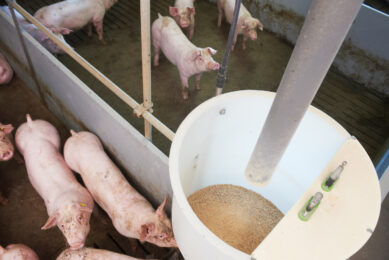USDA: Effect of biofuels on feed prices is low

The role of ethanol production in the exploding feed prices is much smaller than often has been said lately, the US Department of Agriculture (USDA) reported yesterday.
In a report by the department’s Economic Research Service (ERS), factors were considered that contributed to the recent increase in food and commodity prices. Many different causes were considered for the recent rise in food and feed prices.
In a press conference, where also Agriculture Secretary Ed Schafer was present, the report was explained in detail.
Talking about the effect of the increase of ethanol production on the corn prices, the USDA’s chief economist Joe Glauber said: ” I think there’s no question in looking at the overall effect on corn prices, I think it’s fair to say the increase in biofuel production has had some effect, but again, what I’d consider a relatively small effect and one that in looking at it it’s important to take into account a lot of other things that are going on outside of the biofuel sector.”
Other causes
Glauber mentioned other causes to be more important for the global increase in feed prices, emphasising global economic growth.
“In fact if you were to look at countries like India and China where the GDP there has been increasing on the order to 5 to 10% annually, that has expanded demand, particularly demand for meat products, which has contributed to both a growth in livestock exports in the case of this country and also demand for protein meals, soybean meal, other sorts of things. And that has continued and is projected to continue.”
Weather situation
Glauber also mentioned the weather situation. “In particular, droughts that have affected Oceania; Australia is suffering now or is just beginning to come out of a drought that really affected the last two crops quite adversely. We also had problems in the Canadian crop last year, problems in the Ukraine, problems in the European Union. All contributed to a very low wheat crop.”
He also identified strong export restrictions on rice and wheat markets, which were put in place by many countries, “to the extent that a lot less wheat made it on to the world market than we had originally anticipated.”
Energy costs
He continued, “The other major factor on food prices of course has been the energy costs, and the impact that they’ve had on food marketing and transportation costs.
“Lastly, no question, biofuels also has been a very, very important part of this picture. As I mentioned, in the US we’ve seen increases over the last two or three years, and as we increase capacity and add more capacity to the ethanol processing manufacturing sector, that we’re going to see – again we’re calling for about a 33% increase in corn use in ethanol this year.”
For the study to the influence of ethanol production on feed prices, the USDA used data from Iowa State University and University of Missouri.
He closed off, by saying that “it’s also important to realise that when these corn prices pass through to retail prices that again is a much smaller effect.” Glauber mentioned that estimates show that total global increase in corn-based ethanol production accounts for only about 3% of the recent increase in global food prices.”
Related websites:
• United States Department of Agriculture (USDA)
• Economic Research Service (ERS)
• University of Missouri
• Iowa State University
Subscribe here to the free Pig Progress newsletter











